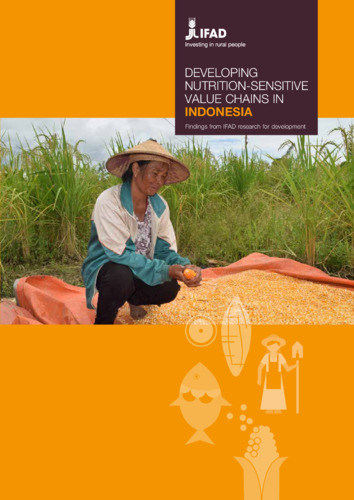Developing nutrition-sensitive value chains in Indonesia
In Indonesia’s eastern Maluku and North Maluku provinces, malnutrition levels are high. Nutrition challenges include monotonous diets with inadequate levels of energy, micronutrients and protein. Studies commissioned by IFAD suggest that strengthened value chains for foods such as bananas, cassava, maize, spinach, sweet potatoes and fish could make business sense for smallholders and lay the foundations for a strong local food system that sustainably delivers nutritious foods for healthy diets. With funding from the German and Canadian governments, IFAD recently carried out a set of studies to determine how to design nutrition-sensitive value chain (NSVC) projects for smallholders. Such projects seek to shape the development of value chains for nutritious commodities in ways that are more likely to address nutrition problems. Investments that increase availability and affordability and promote consumption of nutritious foods, including biofortified or underconsumed varieties; provide extension services as well as nutrition education and behaviour change communications; and improve efficiency of market links and processing could increase incomes of women and men, reduce food losses and increase food safety, while also improving nutritional outcomes, largely through improved diets. Interventions that span multiple value chains can help to diversify and improve the overall quality of the diet.

